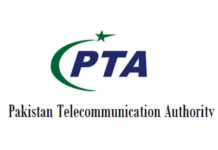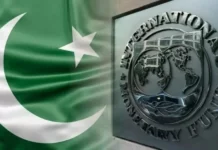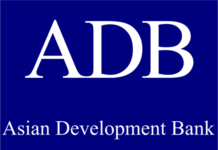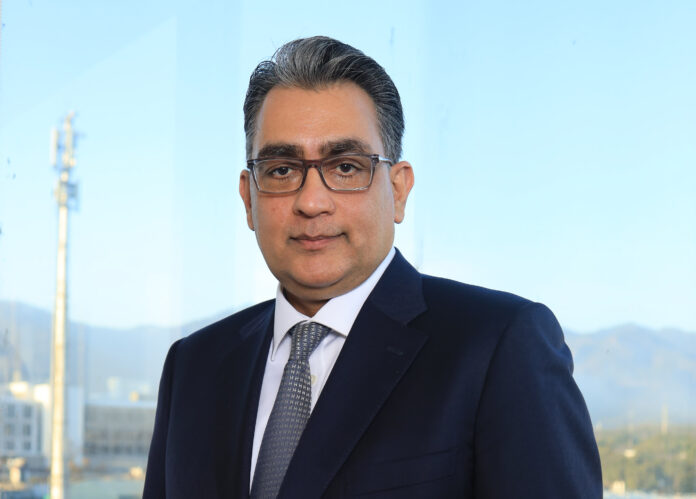“I used to live life by the seconds, not by the minutes.”
That’s the ethos that being a fighter pilot’s son brings you, says Zafar Khan. However, that famous combination of quick thinking and ironclad discipline wouldn’t seemingly be helpful to him, because Khan’s daily workspace isn’t quite as dramatic as the tight cockpit of a Mirage jet fighter. Instead, it is the grand mahogany desk of a board member of a large multinational corporation. Not too shabby, yes, but not quite a schoolboy’s fantasy career either, as opposed to the one his father had, initially.
In an exercise in national angst, Pakistani newspapers wistfully report on the elevation of one Indian after the other, who has been chosen to head their respective behemoth corporations. The list is long. There is Sundar Pichai (Alphabet, which owns Google), Satya Nadella (Microsoft), Indra Nooyi (PepsiCo, till recently), Raj Subramaniam (FedEx) and, most recently, Ajay Banga, who after being CEO of MasterCard, is going to head the World Bank.
And what really twists the knife is that each of the individuals mentioned here got their initial university education in India, before moving to the US. They aren’t born-and-bred Americans, and still have their IIT, IISc, IIM roots. They can crack inside jokes about campus cafeterias on their rockstar-like visits back home.
A stark contrast to Pakistanis, some of whom might be quite successful in the US, but not even in the vicinity of the way Indians are in the American – and hence, global – corporate firmament.
Much like a batch of, say, a hundred GD(P) cadets at the PAF Academy in Risalpur, is down to twelve, or twenty, or seven cadets still in the running to be fighter pilots at the end of their training at the academy, and fewer still, a couple of promotions later, multinational corporations also have a baptism of fire for their management trainees to run through. Few survive; the others are relegated to the plush comforts – and faceless anonymity – of middle and upper-middle-management.
Lots of quick and consequential decisions to be made, and much discipline needed; the c-suite and the boardroom aren’t for everyone, they are told. And most begrudgingly concede.
Zafar Khan, however, caused a bit of a stir when he was appointed as a member of the London-based management board of the world’s largest tobacco company, BAT.
—————
There is a palpable electricity in the air in the offices of Pakistan Tobacco Company (PTC), BAT’s local subsidiary, in Serena Hotel’s sprawling office complex in Islamabad. It’s rare when a board member visits from London, even if this particular board member happened to have started his career here.
“He’s my boss’s boss’s boss’s boss’s boss,” says one executive, down at the office complex’s restaurant grabbing a quick bite to eat before heading back up for the meetings that day.
“Mine, too, minus one boss in that line,” says another, across the table.
They run a tight ship at PTC, but that ship is a tad tighter today, with back-to-back high-level meetings. An almost nervous energy on the floor.
The globetrotting corporate executive himself, however, knows the importance of doing press, so he’s cleared out some time for us.
“I’m a second-generation BAT employee, actually,” he says in his office, referring to his father’s post-PAF career. “No overlap between the two of us, though. I saw the job ad after graduating from university. He had retired by then but was quite happy when I got the job.”
He speaks with a confident and refined ease. If there were any rough edges that the engineering graduate of UET Peshawar (a bit of a boys’ club) had, they have been smoothened, and polished out, by decades of international corporate exposure.
We sit in a grand office on the seventh floor of the office complex. Wide windows soak in sunlight, and a view of the Islamabad skyline, and the lush green Margalla Hills behind it.
We’re sitting with him, in an attempt to understand what makes him tick, so we can try to distill that ‘right stuff’ in him, that got him where he is.
———-
He got his head start, 27 years ago, at the Akora Khattak factory, as a management trainee.
“It was the first time that the PTC was getting high-speed machines. Previously, high technology investment by BAT was always skewed towards developed countries. This was the first time they were bringing something like this to Pakistan. I was made project manager for this within four months of my joining,” he says.
The mechanical engineer seems to have taken to it like a duck to water. “Pure engineering project. Implementing the machines, learning how to run them, making the buildings for them, installing air conditioning for them.”
Production management, quality assurance, the where-its-at of operations, basically. It was from this role, that his career took an interesting turn: he was sent to the Islamabad head office in a marketing role. Operations chaps usually don’t get that gig, not only because they might not want to, in the first place.
“It was somewhere in between Marketing and Operations. That’s what the role was. Innovations. But the innovations weren’t restricted to product only. It was product development, trade marketing, it was many things,” he says.
He seemed to be up for a challenge and a stint outside the comfort zone. Perhaps a first indication of ‘the right stuff.’ A series of starkly different work experiences.
Which is only what the next pivot could be described as. PTC saw Afghanistan as a massive new market access opportunity in the aftermath of the fall of the Taliban regime.
The combination of a track record for innovation and being able to speak the language – Pashto; Khan is a Marwat from Khyber Pakhtunkhwa’s Lakki Marwat District – got him selected for the role.
This is the first time that he got to lead a full team that had many moving parts across disciplines. “Marketing, finance, HR people for establishing a full-fledged business in Afghanistan.”
The Graveyard of Empires wasn’t all too conducive for proper established businesses either. “Too disorganised, the tobacco sector there. Traditionally, the country has been a trading hub. Distributor-based. The locals consume some of the stuff brought there, and the rest becomes part of illicit trade in other countries, Pakistan also being one of those majorly affected.”
He recruited people there, had talks with distributors and eked out a working business.
What is interesting is that he wasn’t formally trained in marketing, or finance, or HR. He had learnt some of that stuff on the job. The company, he says, has a very cross-functional nature of doing its thing. Operations folk in touch with marketing, those guys in touch with finance, people get to know each other and their jobs.
It was, in other words, exactly the reason why he had decided to join BAT, instead of going for his MBA to one of the three universities in the UK that he had been granted admission to. “The average age of their MBAs class was 32; they’d all put in some years in their careers. I wanted to do that first.”
—————
His next big role was reducing the inefficiencies of operations. “We were a manufacturing-centric company. Very decentralised. Procurement would be reporting to finance in one country, to admin in others. Logistics didn’t have an owner.”
Pressures on margins increased globally, and the end-to-end supply chain concept had to come in. “That’s where we merged the leaf, the procurement, the planning function, the logistics, the quality assurance, the development, the manufacturing, everything into one end-to-end operations function, called a supply chain,” he says. “Crop-to-Consumer.”
It was a global initiative at the BAT, and he was selected to head it for the Asia-Pacific region. “That is when my true, international career started.”
Three years in Kuala Lumpur.
He happily traded that swanky address across the Petronas Towers to come back to Akora Khattak, this time as manager of the same factory where he joined as a management trainee years ago.
“A very big milestone for me, and I’m very proud of it,” he said, beaming like a Lt Colonel who gets to command the battalion he was commissioned to after the academy.
From there, on to Bangladesh, to head operations there. It had seemed the company had plans for him, because at that time, that country had the world’s single largest factory.
After expressing an interest in diversifying his experience, he was sent to the planning center in Europe, which also oversaw new product development.
“Big innovations were coming into the market. That involves very intricate planning. You’ve got to stick with the one-in-one-out philosophy. You’ve got to time the products that you are decommissioning.”
A couple of key Global Strategic Operations positions later, he moved to Singapore as the Regional Head of Operations for Asia Pacific and Middle East.
He headed new categories, and from that role, comes his current role as the group operations director, for all category of products, new and legacy alike. The first Pakistani to make it to the board. He has since been joined by another Pakistani, who had also joined BAT at around the same time.
———
The tobacco business has changed since Zafar Khan joined the company 27 years ago. For instance, combustibles were a rather simple affair. The whole crop-to-consumer supply chain might have been a tall order to sync up correctly for larger companies, but it was still a pretty linear deal. The new categories, on the other hand, are going to be different.
“BAT has embarked on a new mission which is to create A Better Tomorrow™ by reducing the health impact of the business through offering adult consumers a wide range of alternative products to smoking. With this comes a whole set of new challenges”
BAT might have been a “supply chain master” in combustibles, but there are two parallel supply chains to manage in New Category products like vapes and others. The consumable part – whose supply chain might resemble combustibles – and the electronic component – whose supply chain is a different animal altogether. Multi-tiered, with one tier going kaput messing up supply chains completely. That, too, for a product whose consumers are famously irritable about even the slightest disruptive delays.
A new set of problems for executives to sink their teeth into.
“We are making great progress in this regard and Pakistan is a torch bearer for our mission. Pakistan is now our third largest Modern Oral market by volume across the BAT World demonstrating the potential of the Modern Oral category in emerging markets.” He confidently remarked.
———-
“No battle plan survives first contact with the enemy,” wrote the German military strategist Helmuth von Moltke. Last military analogy, we promise.
That whole idea seems to have enamored Khan.
Perhaps, when talking about the future of the company, there is some unintended allusion to himself, when talking about Pakistani and South Asian talent.
“Resilience is a very fundamental requirement for any business. Pakistani talent, for example, we are in a hard environment. Things happen, disruptions happen, so we are so well equipped, as South Asian talents, to respond to those challenges,” he says.
So, for those executives, and maybe those still in business school, who might want to take notes:
Zafar Khan’s career is characterized by a healthy quantum of dealing with chaos and disruption. The stint in Afghanistan alone could be a book.
Then, there is a willingness to be a team player, and express an interest in company-wide initiatives.
Then, there seems to be, not just a never say no attitude to trying out new things, but actually insisting on them. Diversification helps you and helps the company.
“I would be in different roles. I was a bit like a joker in a pack of cards in a game of rummy. Any new project coming up, I would be in it.”

























useble blog
promoting cigarettes and profiteering should be looked down upon no paraded as an achievement.
please select better society reformative articles rather than media magnets.
This is indeed a great voyage of talentship, hardwork and commitment and a path-finder for our youngesters in quickly adjusting the need of the company.
really inspiring. am proud to be part of his team zafar was my colleague and we attended many trainings togather . ….